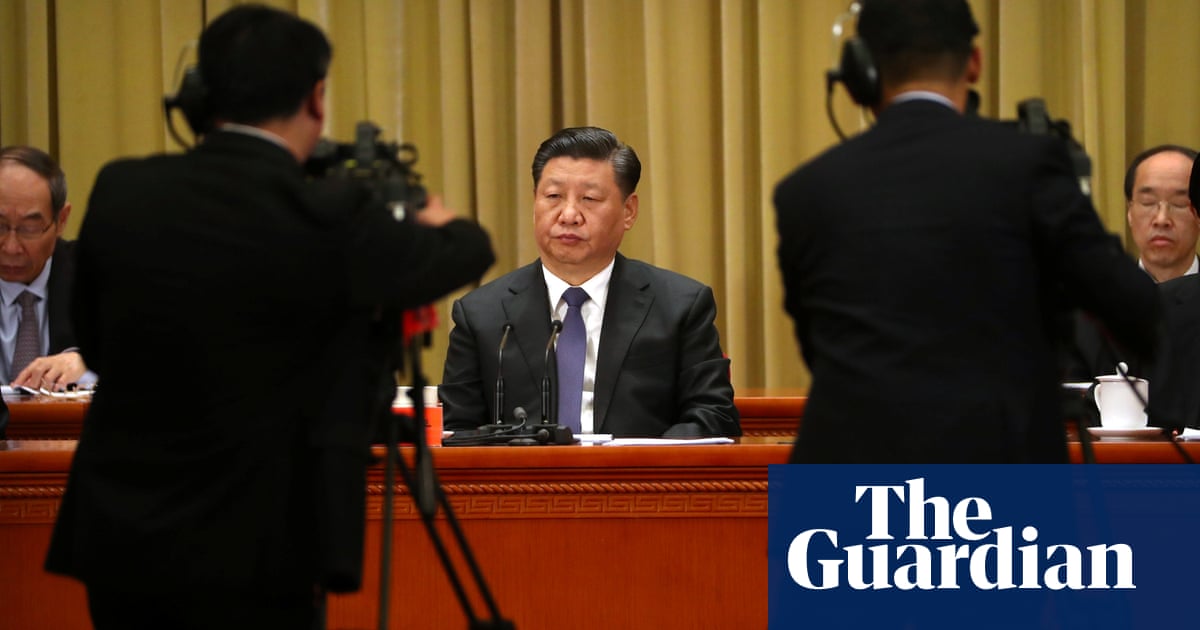
Chinese leader calls for reunification and says independence would be a ‘disaster’
Taiwan’s unification with China is inevitable, Xi Jinping has said as he warned that Beijing reserved the right to use military force to bring it into the fold.
Speaking in Beijing’s Great Hall of the People on the 40th anniversary of a key cross-strait policy statement, the Chinese president described reunification with Taiwan as unavoidable.
“Reunification is the historical trend and it is the right path,” Xi said. “Taiwan’s independence is a reversal of history and a dead-end road.”
All people in Taiwan must “clearly recognise that Taiwan’s independence would only bring profound disaster to Taiwan”, he said.
Taiwan, which has never been under the Chinese Communist party’s control, is China’s most sensitive issue and is claimed by Beijing as its sacred territory.
Xi has stepped up pressure on the democratically governed island since Tsai Ing-wen, of the pro-independence Democratic Progressive party, became president in 2016.
“We make no promise to renounce the use of force and reserve the option of taking all necessary means,” Xi said, adding that the issue was an internal one and that China would permit “no external interference”.
“We are willing to create broad space for peaceful reunification, but will leave no room for any form of separatist activities,” he said.
Xi’s speech was conciliatory in parts, echoing China’s 1979 “message to compatriots in Taiwan”, which eventually led to a thaw in relations between the two sides.
Chinese nationalists fled to Taiwan in 1949 and set up a rival government. In the 1990s Taiwan democratised, and it is often held up as an example of democratic reforms.
Xi promised that Beijing would respect Taiwanese citizens’ private assets, their beliefs, freedom to practise religion and other “legitimate rights”, an arrangement similar to the “one country, two systems” model under which Hong Kong is governed.
“After peaceful reunification, Taiwan will have lasting peace and the people will enjoy good and prosperous lives. With the great motherland’s support, Taiwan compatriots’ welfare will be even better, their development space will be even greater,” Xi said.
Xi said China was willing to talk with any party in Taiwan to push the political process – stalled by China since Tsai took office – as long as they accepted the principle of “one China”. That policy maintains that Taiwan is part of China.
In response to Xi’s speech on Wednesday, Tsai rejected the possibility of such an arrangement. “I call on China to bravely take step towards democracy so they can truly understand the people of Taiwan,” she posted on Twitter.
A day before the address, Tsai said the two countries “must handle our differences peacefully and as equals”.
“I am calling on China that it must face the reality of the existence of the Republic of China (Taiwan),” she said, using Taiwan’s formal name. Beijing “must respect the commitment of the 23 million people of Taiwan to freedom and democracy”, she added.
Beijing has refused official communication with Tsai’s administration because of her refusal to agree with the One China policy.
Her position has damaged her party’s position ahead of a presidential election due in a year. Tsai’s Democratic Progressive party suffered heavy losses to the Kuomintang, seen as more friendly to Beijing, in local elections in November.
Beijing has regularly sent military aircraft and ships to circle the island on drills in the past few years and has heaped pressure on the island internationally, including whittling down its few remaining diplomatic allies.
Reuters and AFP contributed to this report
